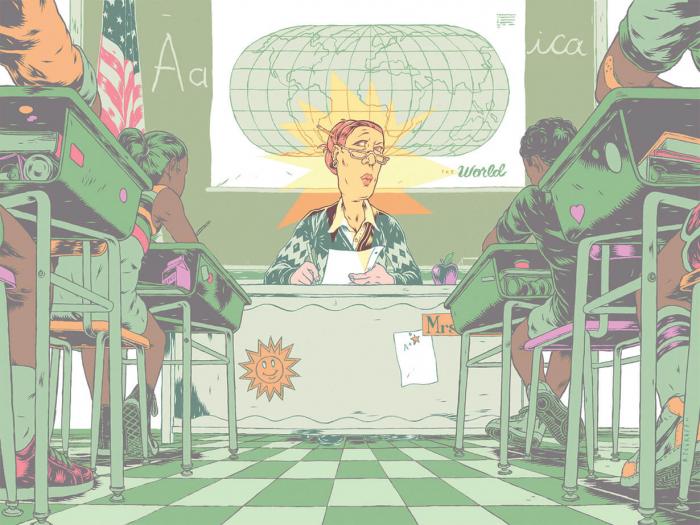Q: Some of my world history students have taken to drawing Confederate battle flags on their homework assignments. What should I do?
You need to let your students know right away that it’s not OK to submit the Confederate battle flag along with their essays on Napoleon or ancient Rome. Is it a good idea to share its history of racism and oppression with them? You bet.
They should also know how symbols like swastikas, nooses and Confederate battle flags can offend and anger other students.
Please share what you’ve seen with an administrator. This behavior could be an indication that there’s a hostile environment for students of color on your campus.

Q: I’ve heard it over and over again—“Don’t act so white.” I see that these attitudes make it harder for my black students to strive for good grades. What can I do?
This trash talk raises two concerns for educators: They worry that students will either avoid excellence or give up their identity.
Some social scientists say that “fictive kinship” is at work—that black students unite because of “who we’re not.” Students who “act white” are betraying the group. It’s like asking, “Aren’t we good enough for you?”
The good news is that studies show high achieving students of color are fairly good at resisting the message—if their achievement provides offsetting social benefits. Also, those who are more aware of how racial barriers work are also more resistant.
Don’t coach your highachieving students to respond to these taunts with clever remarks. Instead, encourage them to develop friendships with people who appreciate them and share their values and goals. Help them to brainstorm ways to find common ground with all their peers.
Q: How can teachers nab “teachable” moments when overhearing students make intolerant remarks without appearing to be like the police?
Good teaching is about building relationships. Establish positive rapport early on, model respectful behavior, and you’ll be ready to grab those moments with compassion and kindness. Respond right away by talking with your students on their level. Try to find out what motivated the remark, what they think it means, and help them understand how others hear it. Most of all, you can avoid looking like the bad cop by being open to the discussion and avoiding words and tones that sound judgmental and scolding. And remember— not addressing it, especially if students know you overheard the remark, sends the message that you agree.